Instructor Information
Name: Will Banks, Associate Professor of English
Office: Joyner 1009 (Writing Center)
Tel: 252.328.6674
Office Hours: T/R 2:00 – 4:00 pm and by appointment
Introduction
No one escapes education, although the form it takes differs dramatically depending on context. We’ve come to believe that only certain kinds of education matter, and at the university, it’s easy for faculty and students alike to believe that only certain kinds of knowledge, found in certain kinds of books and lectures, has any real value.
English 2201: Writing about Education is one of a number of new Composition II courses that students at ECU can take to satisfy their second writing intensive/writing foundations requirement. In this course, we look at issues that are central to “education” generally, and we use writing/composing as a way of making knowledge about education: about our own educational experiences, about larger issues or contexts that shape education, about the ways we have been, are being, or will be educated.
Students in all sections of English 2201 at ECU are expected to command the knowledge, skills, and attitudes described by the Writing Program Administrator’s Outcome Statements for First-Year Composition by the time they complete the course. These outcomes coincide with the learning goals for 2201.
Learning Goals of English 2201
This course will promote your facility with critical reading and writing by helping you to do the following:
- Recognize and explain the significance of variations in content, style, structure, and format across different writing contexts;
- Formulate significant research questions and craft strong research proposals with feasible work plans and timelines;
- Locate and critically evaluate a variety of sources, including field-based, print, and electronic sources;
- Organize source materials and integrate them into your writing;
- Apply research and use writing to achieve a variety of purposes in a variety of contexts;
- Convey the results of research to a variety of audiences through a variety of genres and formats;
- Use clear, appropriate language and grammar in writing about topics in different disciplinary contexts;
- Understand the purposes of citation practices in different contexts;
- Cite sources accurately and responsibly in order to avoid plagiarism;
- Read critically to analyze the writing strategies of experienced writers; and
- Identify and explain writing strategies in your own work.
English 2201 is a writing intensive course in the Writing Across the Curriculum Program at East Carolina University. With committee approval, this course contributes to the twelve-hour WI requirement for students at ECU. Additional information is available at the following site: http://www.ecu.edu/writing/wac/.
Foundations Outcomes
- Students will learn to use various heuristic and planning tactics in preparing a written composition. In drafting and revising, they will learn to choose words carefully, exploit English syntax fully, and ensure coherence. They will learn to edit for standard written English usage, punctuation, and spelling. They will also become competent in using the computer to perform those processes.
- Students will improve their reading skills in order to understand literally, to infer, to recognize ideological bias, and to evaluate. They will deepen their sensitivities to connections and differences among texts. They will increase their capacities for reflecting on experience and analyzing and solving problems creatively.
- Students will learn the aims and means of the expositor and the advocate and will learn to write in order to inform and to persuade.
- Students will learn to formulate research questions, identify and search both print and electronic bibliographic indexes, locate resources in the library, and read widely for selected kinds of information. They will learn to incorporate information gained from the library and other sources into their compositions, citing documents appropriately.
Course Structure
This section of English 2201 will be structured somewhat differently from other courses you have taken or are currently taking at ECU. Specifically, we will focus on “badging pathways” that you as students will choose to complete in order to receive the learning experiences (and grades) that you want. There are seven different badging pathways, each involving various “levels” of work and engagement to complete. Three of these pathways are required of every student; students may choose from among the remaining pathways two additional pathways to complete in order to receive the highest grade possible. (See “grading” below).
Since you will all be working somewhat individually on your badging pathways, class time will often be spent in a workshop format (what some might call a “flipped” classroom): most of our class time will involve you working individually or in groups on your projects, using me (the instructor) and each other as guides/coaches/facilitators/resources as you need help. During the first few weeks of class, we will all be working together on the first two badging pathways, completing short writing and thinking activities in class.
Assignments
In order to complete English 2201: Writing about Education successfully, students will need to complete badging pathways (sets of assignments linked by topic); badging pathways are not complete until all levels have been completed. The following badging pathways are available this semester:
Required Badges
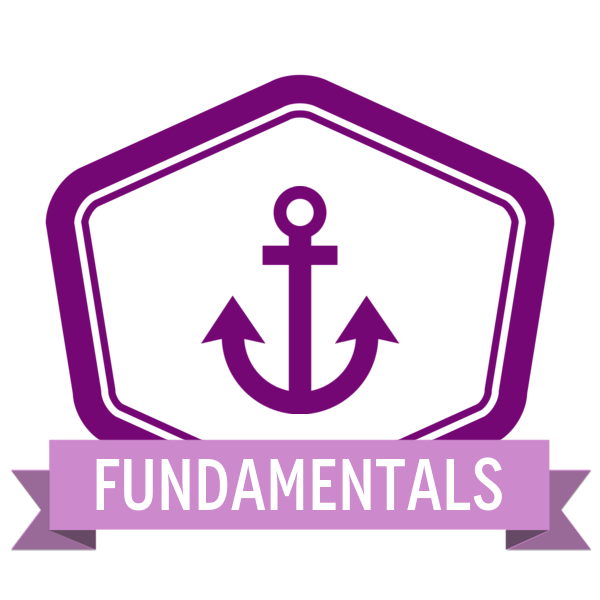
Levels = 4 |

Levels = 3 |
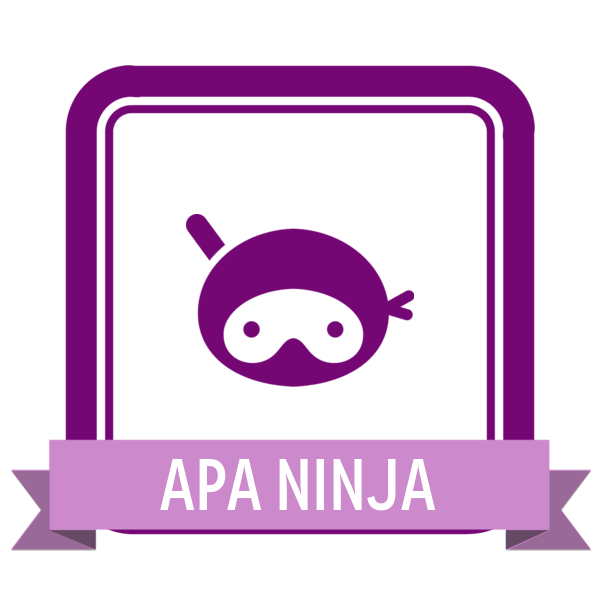
Levels = 3 |
Optional Badges

Levels = 3 |
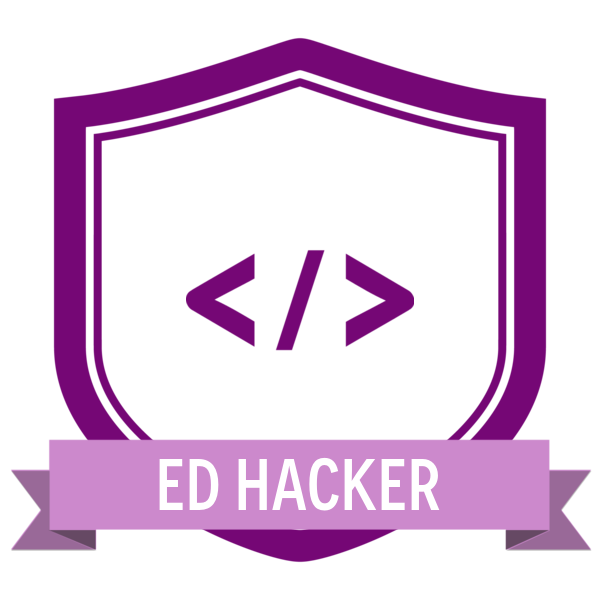
Levels = 3 |
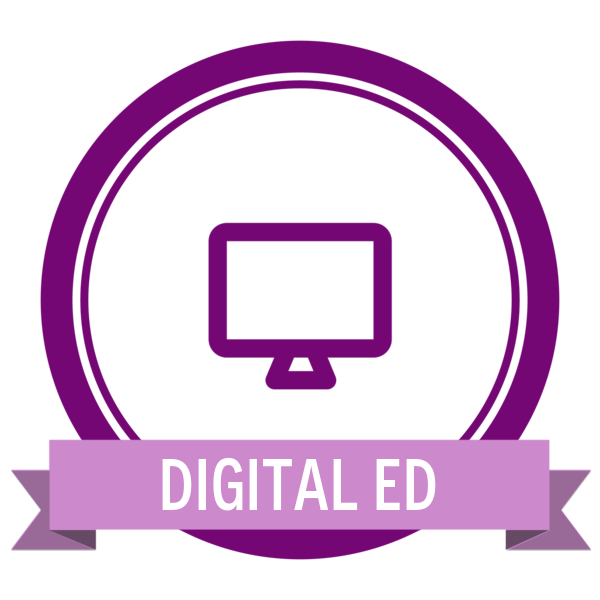
Levels = 3 |
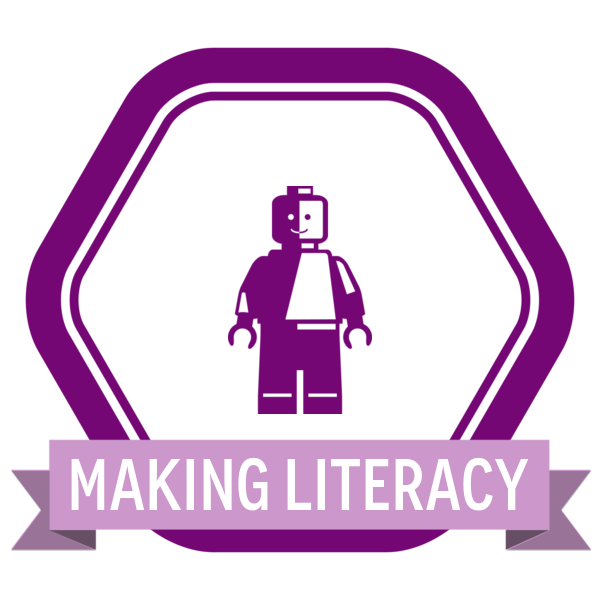
Levels = 3 |
Instructor Role
As your instructor, my role is to create and maintain a high-quality writing and learning environment that supports your growth as readers, writers, thinkers, and leaders. I will do this by facilitating class sessions that focus on the construction of texts, leading activities designed to help you engage the course readings, sharing my own writing process and products with you, helping you learn to find and analyze mentor texts from other writers, and making visible writing resources in the classroom, and on campus, and on the World Wide Web. I will also provide feedback on your projects that coaches, encourages, demands, co-creates, questions, recognizes, and affirms your contribution to our writing and thinking community. While each of you will be active leaders in the teaching, learning, and assessment process, the university charges me with the responsibility to make final judgements regarding any class activities or assignments that do or do not meet the learning outcomes of the course.
Grading
This course uses a badging model of assessment, one that represents a type of contract approach to grading. The contract approach privileges the behaviors (listed below) that strong writers engage in, linking behaviors, not written products, to specific grades. Simply put, if you take this class experience seriously, challenge yourself to make learning stretches, and pay close, careful attention to your writing and to the writing of others, your composition skills, confidence, and success will grow.
Each of the course project sets culminates in the possibility of your earning a digital badge from Cred.ly. Three badges are required of all students to pass the course; students may choose two additional badges/project to complete depending on the grade they want to earn.
- D = 2 required badge
- C = 3 required badges
- B = 3 required + 1 optional badge
- A = 3 required + 2 optional badges
Students who do not earn at least two required badges, regardless of how many other badges/projects they complete, will not receive a passing grade for English 2201.
In addition to completing the necessary projects and earning the necessary badges, students must meet the following requirements to receive a passing grade for English 2201:
- attending class, on time, with all necessary materials every class period;
- participating fully in all exercises and activities, both face-to-face and virtual;
- meeting due dates (you must ask for a deadline extension in writing prior to the assignment due date if you are experiencing extreme circumstances) and fulfill reading and writing criteria for all formal and informal writing and reading assignments;
- copy-editing final revisions of badging projects until they conform to the conventions of edited, revised English;
- giving thoughtful, substantial, well-articulated feedback to peer writers during class workshops both face-to-face & virtually;
- submitting all assignments in appropriate digital venues, and learning to use all required digital tools.
If you have any concerns about your grade as the semester progresses, please see me immediately to discuss your options and opportunities to improve course performance. Because undergraduate students earn pluses and minuses on grades, the six “requirements” listed above will be used to determine plus/minus status. For example, students who complete all the badging pathways for B but who regularly miss class or are late for class would receive a B- or C+ depending on the frequency of the absences; similarly, a student who completes the badging pathways for a B and who meets all deadlines on time and carefully copyedits his/her work, etc., would receive a B+ for the course. Missing more than 4 class periods (2 weeks) of class will seriously impact your grade.
Traditional Grading Scale
|
Letter grade |
Quality points |
Assessment Guidelines |
|
A |
4.0 |
Student always meets expectations |
|
A- |
3.7 |
Student almost always meets expectations |
|
B+ |
3.3 |
Student meets expectations a majority of the time |
|
B |
3.0 |
Student generally meets expectations |
|
B- |
2.7 |
Student meets expectations with some lapses |
|
C+ |
2.3 |
Student meets expectations with more than occasional lapses |
|
C |
2.0 |
Student has significant lapses in meeting expectations |
|
C- |
1.7 |
Student meets expectations about half the time |
|
D+ |
1.3 |
Student meets expectations less than half the time |
|
D |
1.0 |
Student only sometimes meets expectations |
|
D- |
0.7 |
Student rarely meets expectations |
|
F |
0 |
Student almost never meets expectations |
Required Texts
Textbooks for the course are completely dependent on which badging pathways students take as each pathway may require a different text or texts. Those texts are listed on the separate course page for each badge (see “Assignments” above).
Other Required Materials (Bring to class daily)
- A Daybook (marble composition book)
- Markers or Colored Pencils
- Post-It Notes
- Laptop or Tablet Computer and headphones/earbuds
- Digital Camera (mobile phone is fine)
Instructor Expectations
I expect you to arrive on time for class, every class period with your writing, any books or articles we are reading, and the supplies listed above. I expect you to devote a minimum of six (6) hours per week outside of class to course-related activities. I expect you to meet deadlines and ask for an extension in writing prior to class or due date if you have extenuating circumstances. I expect writers to bring a positive attitude about about writing and research and enjoy the act of learning as well as the projects we will work on this semester. And I expect writers to feel that they can talk to me about their work, their concerns about their writing, and their goals for this course. To that end, I invite you to visit me often during my office hours. No appointment is necessary. Just stop by and bring your daybooks, emerging ideas, laptops, multiple drafts, questions, etc. If my office hours do not work for you, we can find other times, locations, or virtual meeting places that do, but you cannot expect any instructor to just drop everything and make space for you without some notice: lots of meetings, workshops, conferences, etc are arranged far in advance and require me to be out of town or the office.
Computers in the Classroom
As stated, you are required to have your own laptop/tablet/smart phone for use during class time. We will work in both virtual and physical spaces during class time; however, certain computer-related behaviors will not be tolerated. You may check your email or free-surf the web as you please before and after class, but after I announce the beginning of class, any student still using email, chat programs, or web browsers for non-class-related activities will be warned about their behavior. If this continues, I will consider you absent from class for the day. Likewise, you retain sole responsibility for keeping electronic copies of all your work and posting work prior to due dates. Lost or stolen passwords or computer crashes, etc. do NOT excuse you from submitting your work electronically and having electronic copies of all your work at the end of the semester. Remember to make frequent back-up copies of files and save your work in digital composing environments every five or ten minutes.
Academic Integrity
Academic integrity is a fundamental value of higher education and East Carolina University; therefore, I will not tolerate acts of cheating, plagiarism, falsification or attempts to cheat, plagiarize or falsify.
Plagiarism
The ECU student handbook defines plagiarism as “Copying the language, structure, ideas, and/or thoughts of another and adopting same as one’s own original work.” You may access the student handbook definition here.
Be aware that the writing you do for this course must be your work and, primarily, your words. It is OK to incorporate the words or ideas of others in support of your ideas, but when you do so, you should be sure to cite the source appropriately. We will talk about citation during the course.
Penalties for plagiarism are severe—if I become aware of any intentional attempt to plagiarize (e.g. knowingly submitting someone else’s work as your own, downloading a paper from the internet, etc.), you will be given an “F” for the course and a report will be filed with the Office of Student Rights and Responsibilities, the office which maintains reports from all university faculty and staff regarding academic integrity violations. If you are caught cheating or plagiarizing a second time, in this course or in any other course while you are at ECU, you can be suspended or even expelled from the university. Be sure to see me if you have any questions about plagiarism before you turn in an assignment.
Accommodations for Students with Special Needs
East Carolina University seeks to comply fully with the Americans with Disabilities Act (ADA). Students requesting accommodations based on a covered disability must go to the Department for Disability Services, located in Slay 138, to verify the disability before any accommodations can occur. The telephone number is 252-737-1016 and their email is dssdept@ecu.edu.
Weather/Campus Emergencies
In case of adverse weather, or other campus emergency, critical information will be posted on the campus web site and announced on the campus hotline: (252) 328-0062.
Continuity of Instruction
During a pandemic or catastrophic event, and after all face-to-face instruction has been suspended, communication for our class will take place through ECU email and course websites. In the event of such an emergency, check your ECU email account for instructions.
Response to Syllabus
When you finish reading the syllabus, proceed to the following post and follow the directions: Course Questions.
